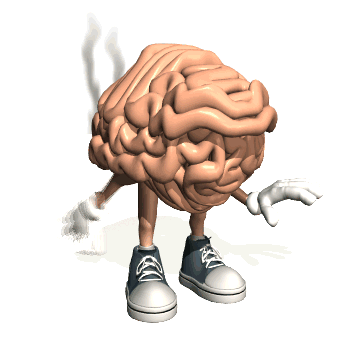How Do We As Psychologists View Our Patients?

The majority of people who seek consultations are prompted to do so by an internal need to get better when in a state of instability. Patients who seek therapy normally do so when they are close to losing control, when they have hit rock bottom. It is then that we as psychologists find how great their strength and courage is, and instead of getting lost in excuses they face their problems.
In spite of the clichés and society’s ignorance of the role of psychologists, patients enter into therapy as a means to readjust their lives. They have to learn to unlearn conduct, habits and thoughts that have gotten them there.
I would like for patients who seek therapy to be known as courageous people with a great sense of responsibility toward themselves, not as “crazies” that a society full of ignorance and fear insists on selling us.

“Psychology, unlike chemistry, unlike algebra, unlike literature, is an owner’s manual for your own mind. It’s a guide to life.”
-Daniel Goldstein
Psychologists Don’t Give Advice, We Give Therapy
If you need advice, you see your best friend, your partner, or your family. They know you better than anyone and can give you good advice. But, if you need someone to explain your behavior and why you feel this way, to help you chose the methods and treatments appropriate for your personality traits, then you should seek a psychologist.
We are aware how difficult it is to make the decision to schedule an appointment with a psychologist. Because of this, we always try to give all the information possible right at the beginning, and during therapy we try to ensure the person knows exactly what we are working on and why.
For psychologists, it is gratifying when, after having worked on many harmful thoughts and emotions, we see that the patient is able to exercise control over them. When this occurs, the patient feels much better, begins to participate in more activities, confronts problematic situations from a different perspective and is able to filter their thoughts to see them in a more objective way.

We are convinced that more people would take the step to seek psychological care if they could see the results it gives, both on a personal level as well as a social one.
“The primary cause of unhappiness is never the situation but your thoughts about it. Be aware of the thoughts you are thinking.”
-Eckhart Tolle
We Learn Along With our Patients
Psychotherapy is an experiential process and dialogue where the therapist and patient’s influence is reciprocal, existing in mutual learning and transformation. Not only do the patients change, learn and transform, but we the therapists also do so to some degree.
Just as a good teacher would do, our patients teach us by their example. It is important to clarify what it means to us that our patients teach us. In fact, when we tell a patient how much we admire them for their courage or their decisions, they may look perplexed and surprised, as if they cannot believe they were able to teach us something.

Everyone, without distinction, whether patient or therapist, are susceptible to suffering and deception. On the other hand, we all share a great desire to improve our sense of well-being, and enjoy more happiness and peace. Our patients do not come see us to teach us something explicitly, but rather they do so implicitly with their clarity, their commitment to their own changes and their ability to make the necessary decisions.
“Psychology cannot tell people how they ought to live their lives. It can however, provide them with the means for effecting personal and social change.”
-Albert Bandura
The majority of people who seek consultations are prompted to do so by an internal need to get better when in a state of instability. Patients who seek therapy normally do so when they are close to losing control, when they have hit rock bottom. It is then that we as psychologists find how great their strength and courage is, and instead of getting lost in excuses they face their problems.
In spite of the clichés and society’s ignorance of the role of psychologists, patients enter into therapy as a means to readjust their lives. They have to learn to unlearn conduct, habits and thoughts that have gotten them there.
I would like for patients who seek therapy to be known as courageous people with a great sense of responsibility toward themselves, not as “crazies” that a society full of ignorance and fear insists on selling us.

“Psychology, unlike chemistry, unlike algebra, unlike literature, is an owner’s manual for your own mind. It’s a guide to life.”
-Daniel Goldstein
Psychologists Don’t Give Advice, We Give Therapy
If you need advice, you see your best friend, your partner, or your family. They know you better than anyone and can give you good advice. But, if you need someone to explain your behavior and why you feel this way, to help you chose the methods and treatments appropriate for your personality traits, then you should seek a psychologist.
We are aware how difficult it is to make the decision to schedule an appointment with a psychologist. Because of this, we always try to give all the information possible right at the beginning, and during therapy we try to ensure the person knows exactly what we are working on and why.
For psychologists, it is gratifying when, after having worked on many harmful thoughts and emotions, we see that the patient is able to exercise control over them. When this occurs, the patient feels much better, begins to participate in more activities, confronts problematic situations from a different perspective and is able to filter their thoughts to see them in a more objective way.

We are convinced that more people would take the step to seek psychological care if they could see the results it gives, both on a personal level as well as a social one.
“The primary cause of unhappiness is never the situation but your thoughts about it. Be aware of the thoughts you are thinking.”
-Eckhart Tolle
We Learn Along With our Patients
Psychotherapy is an experiential process and dialogue where the therapist and patient’s influence is reciprocal, existing in mutual learning and transformation. Not only do the patients change, learn and transform, but we the therapists also do so to some degree.
Just as a good teacher would do, our patients teach us by their example. It is important to clarify what it means to us that our patients teach us. In fact, when we tell a patient how much we admire them for their courage or their decisions, they may look perplexed and surprised, as if they cannot believe they were able to teach us something.

Everyone, without distinction, whether patient or therapist, are susceptible to suffering and deception. On the other hand, we all share a great desire to improve our sense of well-being, and enjoy more happiness and peace. Our patients do not come see us to teach us something explicitly, but rather they do so implicitly with their clarity, their commitment to their own changes and their ability to make the necessary decisions.
“Psychology cannot tell people how they ought to live their lives. It can however, provide them with the means for effecting personal and social change.”
-Albert Bandura
This text is provided for informational purposes only and does not replace consultation with a professional. If in doubt, consult your specialist.







